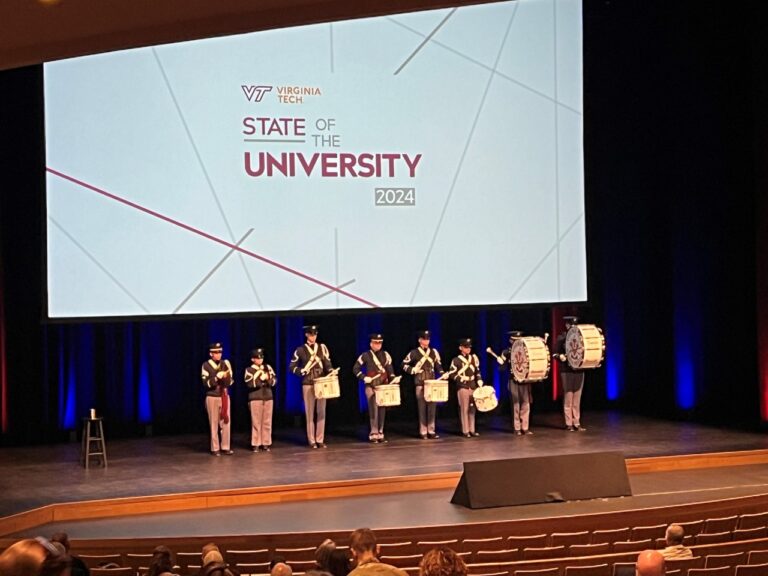BLACKSBURG, Va. (WFXR) — On Wednesday, February 7, Virginia Tech President Tim Sands delivered his eighth State of the University Address since joining the university. In his speech, President Sands said that while Virginia Tech has grown in many ways, it is limited in some ways by the growing need for infrastructure and housing.
The new infrastructure is expected to be open by the end of the year, but there is still a need to cap student numbers at 30,000 for housing reasons. Although there are more than 52,000 applicants this year, just over 7,000 will be accepted.
“We anticipate that it will take another four years before there is enough housing available, both on-campus and off-campus, for us to have growth options,” Sands said.
Sands said the university is working on building more housing, including a student living village project. This includes four phases. The first phase alone will add 600 beds to the campus, but it will take years to complete, he said.
Blacksburg Mayor Leslie Hager Smith recently expressed concern about the university's growth, saying the university needs to do more to take the pressures of growth off the town.
Asked about those comments, the president said he wanted to have a larger conversation and receive “shared vision training” to help.
“We communicate a lot. We have conversations almost every day between people from the town of Virginia Tech, Blacksburg, and the surrounding communities in Christiansburg and Montgomery County. But… Having a conversation is different than sitting in a room and working through a process, and I hope that's the next step,” Sands said. “We have been talking about doing this with the mayor and other community leaders over the last year, and we are ready. But I'm excited about it, it worked well at my previous institution, it works well here, and perhaps even better, and there's no misunderstanding of where we're going. I think we can get it on track without any problems.”
But it wasn't all about housing and infrastructure.
Sands also mentioned other areas for growth, including doubling the funding goal, welcoming new faculty and securing resources to compete globally. Looking ahead, he says his two priorities for next year are to achieve a more competitive world ranking and to maintain affordability for students.
Regarding the latter, the Chancellor said that the university has talked with students from lower economic backgrounds, who have to work full-time or part-time jobs to attend university, so there are certain things that could be further developed. He pointed out that people often don't have the time or resources to gain experience. Careers including research, internships, and study abroad opportunities.
“We believe there are approximately 5,500 Virginia students on campus who are not receiving the support they need. Most of them will graduate, but that's not the question. The question is are they ready to launch? But the answer is often no, and we need to fix that,” Sands explained.
This led to the creation of the Virginia Tech Advantage Program, which helps low-income students gain career-advancing experiences. Within the next few years, the university hopes to raise $500 million to support this program.
“All of these things cost money and time. And we take away some of that opportunity cost and give all students the opportunity to have a true Virginia Tech experience,” Sands explained.
This year marks 10 years since Tim Sands has been at the university. Looking back, Sands recalled that his 2014 commencement address identified two new priorities for the university. It's about securing the resources to compete on the world stage and expanding access for students who can't afford college.
He said the university is making waves on both priorities, ranking 97th in the world in impact rankings and achieving its goal of having 40% of its student population come from underrepresented communities.
Looking to the future, an innovation campus in Alexandria is scheduled to open next year. The university said it expects the number of graduate students to increase because it has campus and graduate school buildings in large areas such as Roanoke and Washington, D.C.
Sands also mentioned the coming year, which will be marked by a presidential election and ongoing global conflicts.
“We will continue to support freedom of expression and academic freedom, while maintaining our stand against anti-Semitism, Islamophobia, and any acts of discrimination against members of our community,” Sands said.


